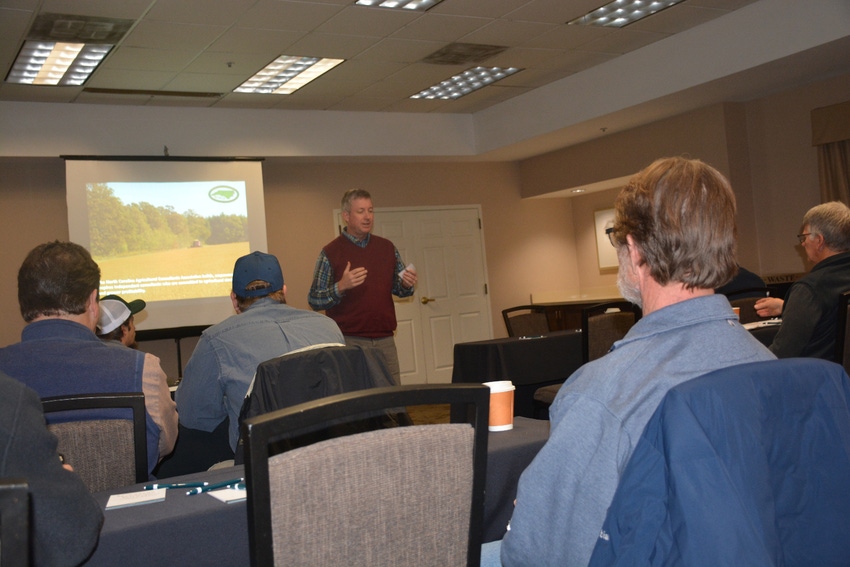
Assistant North Carolina Agriculture Commissioner Sandy Stewart is urging members of the North Carolina Agricultural Consultants Association to become more involved in agricultural policy.
Speaking to the North Carolina consultants at their annual fall conference in Raleigh Dec. 10, Stewart, who has served as assistant commissioner of agricultural services for the North Carolina Department of Agriculture and Consumer Services since May 2018, said the group could have more influence over policy and he urged them to make their voice heard.
“Y’all are not a commodity group, but you have a perspective, and you see a lot of acres. You see a lot of farmers, you deal with the policy that comes down in a whole lot of different ways,” Stewart told the consultants.
Stewart emphasized that the consultants should have a better seat at the table as policy is developed.
“You understand the implementation of the policy, you understand the technical quite a bit, but I think you probably understand how far reaching it can be in many cases. Consultants have a voice that needs to be heard. The experience and technical expertise you have is something that needs to be heard more than it has been heard in the past,” Stewart said.
Stewart highlighted the submission by North Carolina in early 2021 to the Environmental Protection of a special local needs label that would have moved the cut-off date for over-the-top-applications of dicamba to July 31 for both cotton and soybeans as one area where the input of the consultants was needed.
On March 15, EPA officially denied the request which means the application cut-off dates in North Carolina would return to dates imposed by the federal labels for the various dicamba products.
“That was something that EPA in the past with past administrations would have probably granted. Obviously, they didn’t this time around. The whole dicamba thing is kind of up in the air again. We had great support from North Carolina State University, as we always have. We had connections in Washington. The commissioner had direct conversations with the EPA administrator. This is a good example where the expertise and experience of the independent consultants is a voice that needs to be heard.”
Stewart urged the consultants to be active in the upcoming farm bill debate. He said the bill is likely to be crafted with a pile of climate-related policies as well as a re-evaluation of the Water of the U.S. rule. He said the consultants offer as good or an even better technical expertise in these issues as anybody.
About the Author(s)
You May Also Like






